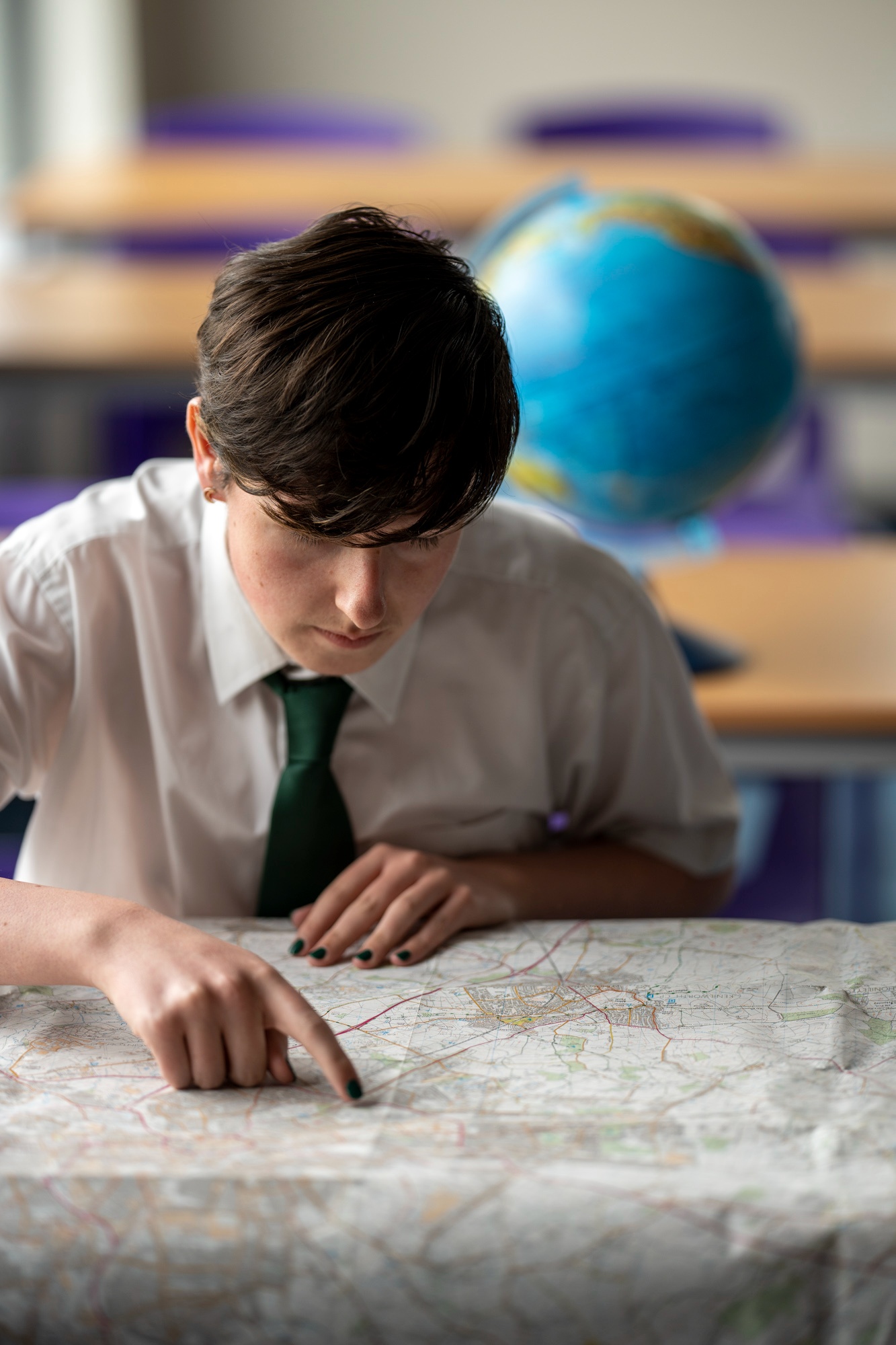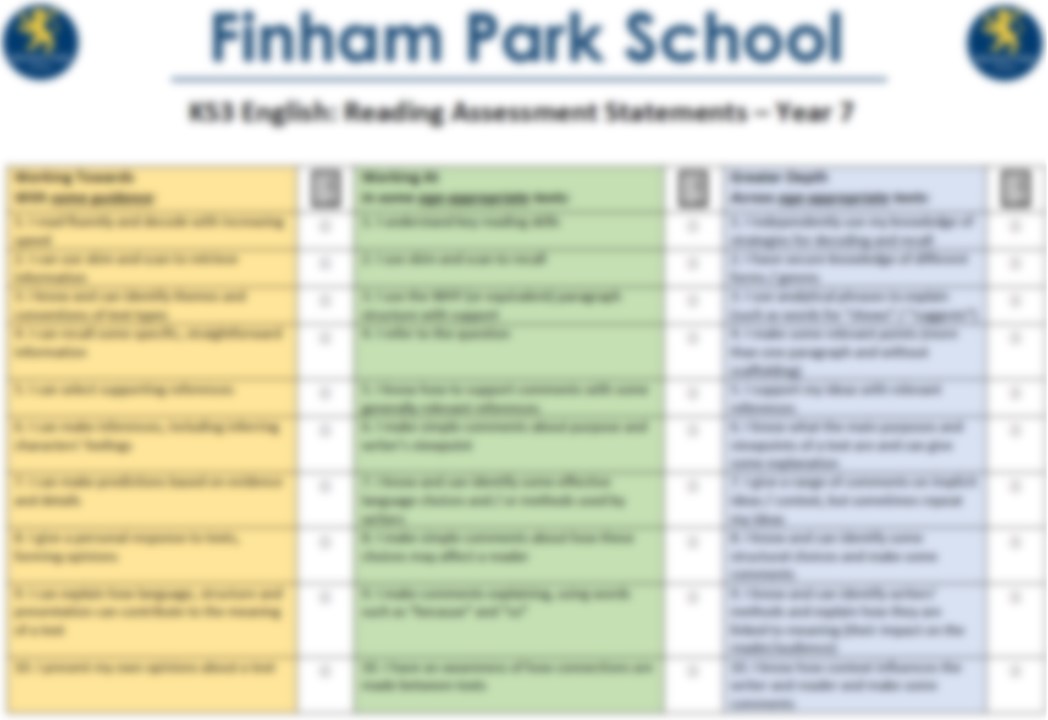Geography
Welcome to the Geography department
Curriculum intentions and Aims
To explore the world and its evolving and sensitive relationship between the natural and human world and nurture global citizens of the future.
For all students to acquire a sound knowledge of both human and physical Geography. To develop an analytical and evaluative understanding of the world by exploring case studies and topical events through regular debate and written responses.
Curriculum Background
Geography is the study of the environment and humans’ interactions within in. Our aim is to enrich students’ knowledge and understanding of the world they live in by allowing students to:
- Explore the complex relationships between the different components and elements that make up our earth
- To probe the dynamic relationship between the natural and human world
- To assess how past, current and future events have shaped or may shape places for both human beings and nature
- To build more socially and environmentally sensitively, and therefore nurture responsible global citizens
At Finham Park School the Geography curriculum intends to enable our young people to develop a critical understanding of their world and how they interact with it. We endeavour to equip our young people with the ability to analyse their changing environments. We aim to broaden their world view by providing access to a variety of diverse global cultures.
Students are encouraged to consider how the world and its physical and human relationships shape our environments. This will be done through the 4 key concepts outlined in the national curriculum for Geography.
4 key geography concepts from the national curriculum
- Locational Knowledge – Extend students’ locational knowledge and deepen their spatial awareness of the world’s countries using maps of the world to focus on Africa, Russia, Asia and the Middle East, focusing on their environmental regions, including polar and hot deserts, key physical and human characteristics, countries and major cities. This includes student participation in local investigations of the students’ home city of Coventry
- Place Knowledge – understand geographical similarities, differences and links between places through the study of human and physical geography of a region within Africa (Horn of Africa, Kenya), and of a region within Asia (Middle East)
- Human and Physical Geography – understand, through the use of detailed place-based exemplars at a variety of scales, the key processes in:
- Physical geography relating to: geological timescales and plate tectonics; rocks, weathering and soils; weather and climate, including the change in climate from the Ice Age to the present; and glaciation, hydrology and coasts
- Human geography relating to: population and urbanisation; international development; economic activity in the primary, secondary, tertiary and quaternary sectors; and the use of natural resources
- understand how human and physical processes interact to influence, and change landscapes, environments and the climate; and how human activity relies on effective functioning of natural systems
- Geographical skills and fieldwork – build on their knowledge of globes, maps and atlases and apply and develop this knowledge routinely in the classroom and in the field. Interpret Ordnance Survey maps in the classroom and the field, including using grid references and scale, topographical and other thematic mapping, and aerial and satellite photographs. Use Geographical Information Systems (GIS) to view, analyse and interpret places and data. Use fieldwork in contrasting locations around the school site to collect, analyse and draw conclusions from geographical data, using multiple sources of increasingly complex information.
Through a stimulating and responsive spiral curriculum, we investigate a wide range of geographical skills, concepts and case studies. We explore and extend beyond all the strands outlined in the national curriculum at KS3. For example, we embedding a range of evolving case studies from countries with differing levels of development to support students’ global awareness and develop evaluative thinking. We believe it is important to explore students home city of Coventry and have subsequently embedded this within our curriculum. Geography lessons dynamically integrate assessment opportunities for summative and formative feedback with students. Responsive teaching is at the core of our lessons, allowing us to reflect and support students’ progression.
We have an encouraging uptake with both our GCSE and A-Level classes. We have a diverse cohort who all progress to achieve well. Our frequent student voice validates the positive impact of our curriculum for our students. Our learners are proactive with their Geography curriculum, for example by voluntarily engaging in workshops, fieldwork opportunities and external Geography competitions with local universities.

Key Stage 3
Students are introduced to Geography in year 7 by exploring a range of places across all global continents in the topic of ‘Wonderful World’. This topic has been designed to develop Key Stage 1 and 2 learning whilst supporting the transition into Key Stage 3. This sequence continues by studying geographical topics such as; Mysterious Maps, Wild Weather, Raging Rivers and Amazing Africa. Students continue their learning journey in year 8 exploring the topics of; Vicious Volcanoes, Planet’s Problems, Beautiful Biomes, Glistening Glaciers and Adventures in Asia across the academic year. Students continue to investigate a range of global case studies, focusing in depth on Asia and using local examples where possible. In year 9 students will develop their learning further through studying the topics of; Terrifying Tremors, Sprawling Settlements, Magical Malaysia, Changing Coastlines and Jammin’ in Jamaica.
Learning is sequenced to allow students to build on prior knowledge and understanding. This develops analytical and evaluative understandings of the world and encourages students to become responsible global citizens. Students will complete school-based fieldwork where they will explore themes evident in these topics.
Key Stage 4
Our AQA GCSE course aims to nurture and develop prior learning of content, concepts or skills wherever possible. Units are carefully selected so that the aim of our intent remains both visible and viable.
Student’s study AQA A GCSE Geography. The course is assessed with three exam papers which are all examined at the end of year 11:
- ‘Living with the Physical Environment’
- ‘Challenges in the Human Environment’
- ‘Geographical Applications’
The topics included in ‘Living with the Physical Environment’ are Physical Landscapes in the UK (Rivers and Coasts), The Living World (Ecosystems, Tropical Rainforests and Deserts) and The Challenge of Natural Hazards (Tectonic Hazards, Weather Hazards and Climate Hazards).
The topics included in the ‘Challenges in the Human Environment’ are The Changing Economic World (Nigeria and the UK), Urban Issues and Challenges (Rio and London) and The Challenge of Resource Management (Focusing on the challenges of water, food and energy resources globally and in the UK).
‘Geographical Applications’ – students will complete two fieldwork investigations; one for Human Geography and one for Physical Geography. Students are also required to examine a pre-release resource booklet and use decision making skills to explore and evaluate this.
Our topics are selectively sequenced to allow students opportunities for retention and retrieval practise throughout. The sequence allows students to continually develop and extend their learnt knowledge. We vary our sequence between human and physical geography to help maximise all student’s engagement and allow the opportunities for students to understand how all topics can be linked and not simplistically be just physical or human geography.
Key Stage 5
In Year 12 students will begin their study of the OCR A level Geography course. This course is a 2-year course and is divided into 3 exam papers and 1 coursework assignment. All exam paper are assessed at the end of the 2-year course:
- ‘Physical Systems’
- ‘Human Interactions’
- ‘Geographical Debates’
- ‘NEA’ – Non examined assessment – Independent Investigation 3000-4000 words
In Year 12 students study Changing Spaces; Making Places, Landscape System (Coastal Landscapes), Global Connections (Power and Borders), and The Earth’s Life Support Systems. Towards the end of Year 12 students will also start their 3,000-4,000-word Non-Examined Assessment (NEA).
As they progress into Year 13 they will continue to study The Earth’s Life Support Systems, Global Connections (Global Migration), Hazardous Earth and Climate Change. Students continue to investigate a range of geographical processes, skills and case study examples throughout these topics. Students will also finalise their 3,000 to 4,000-word Non-Examined Assessment (NEA).
Throughout these topics a range of geographical processes, skills and global case studies are investigated. We offer students wider reading tasks and reading lists to accompany all the topics they study and choose case studies selectively to allow students the opportunity to go beyond the specification and attain the higher grades.
Fieldwork is an integral part of our course and students are offered the opportunity to attend a residential trip to conduct a variety of fieldwork activities. Data presentation of fieldwork investigations will also involve GIS which enables students to develop these skills. Graph and numeracy skills are also practiced throughout all topics and in year 12 students have a skills lesson timetabled to support their numeracy as this is an integral part of the course.
Throughout the academic year, upon the occurrence of major geographical events, these will sensitively be investigated with students (for example the Haiti earthquake and COP26). This is a vital part of our curriculum and therefore occasionally students may move away from the intended curriculum path, to further develop geographical skills through the study of current world events.
Department Staff
| Head of Department | Ms L Beioley (BA) |
| Ms R Jheeta (BSc) | |
| Mr D Shield (BA) | |
| Ms C Baker (BA) | |
| Ms C Watson (MA) | |
| Mr N McGrattan (BA) | |
| Mr G Walker |

